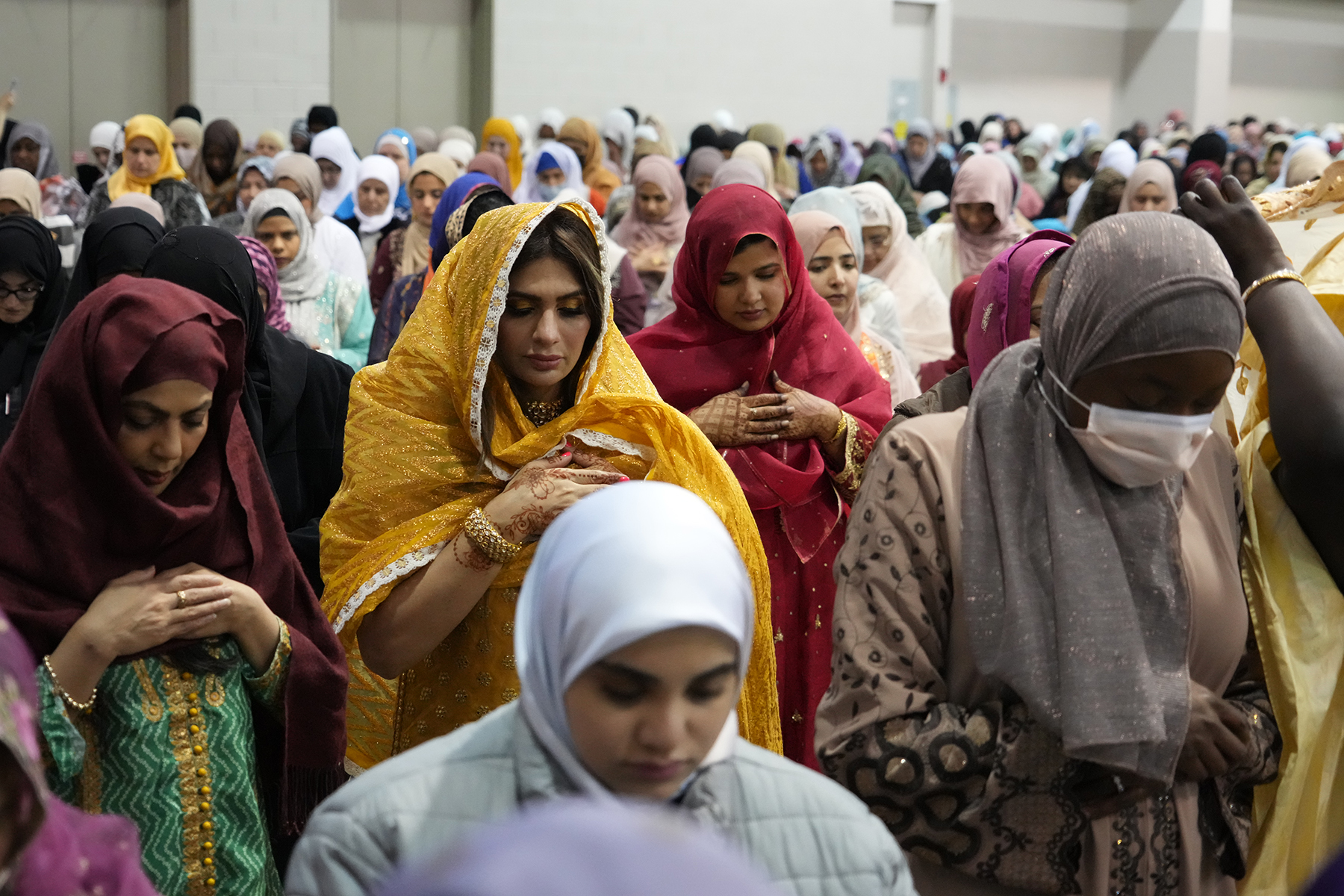There are misconceptions about Islam that arise from misinterpretation or intentional misinformation.  It's important to address these myths and stereotypes with accurate information. Understanding these truths fosters respect, empathy and a deeper appreciation for the Muslim community.
It's important to address these myths and stereotypes with accurate information. Understanding these truths fosters respect, empathy and a deeper appreciation for the Muslim community.
Myths About Islam
Islam, like many religions, emphasizes peace and compassion. The word Islam itself comes from salaam, meaning peace. Intentional misinterpretation by groups with anti-Muslim agendas have been instrumental in spreading misinformation. Misinterpretations and the actions of extremists distort the core teachings of Islam.
Only about 20% of Muslims are Arab. Islam is practiced worldwide, with large populations in Indonesia, South Asia, and Africa.
Muslims, regardless of ethnicity, pray and read the Quran in the Arabic language, the original language in which the Quran was revealed.
Islam granted full rights to women over 1400 years ago, including education, inheritance, right to work and run for political office. Cultural practices, not religious doctrine, contribute to restrictions faced by some Muslim women. Those unfamiliar with Islam assume that modesty dress including hijab is oppressive. Muslim women believe it is liberating and consistent with women of faith such as Mary, the mother of Jesus.
Muslims hold Jesus (known as Isa in Arabic) in high regard as a prophet and believe in his miracles by the will of God. However, they view him as a human prophet, not as the son of God.
Jihad actually means struggle or striving and primarily refers to personal, spiritual efforts toward self-improvement. While it includes defending against injustice, it does not mean violent conflict or holy war. Holy war is a term coined by Crusaders.
Historically, the Islamic world contributed significantly to science, math, medicine, literature and philosophy. Many Muslims see scientific exploration as a requirement of their faith.
While Islamic art often avoids depicting God or the prophets, it has a rich tradition in calligraphy, architecture, poetry, and decorative arts.
Muslims worship the same monotheistic God recognized in Christianity and Judaism. The Arabic word Allah simply means God.
Sharia, or Islamic law, is interpreted differently across regions and cultures. It includes guidance on ethics and personal conduct, not just legal rulings, and is not a monolithic or uniformly enforced system.
Unfortunately this is often being promoted by politically motivated groups who hate Muslims. Christians and Jews are faith communities referred to in the Quran as People of Scripture, an honorary title recognizing them as communities who received revelation from God. As a requirement of faith, Muslims are required to believe in and honor the prophethood of Abraham, Moses, Jesus and many others. In stark contrast to other faith communities who have denigrated Prophet Muhammad, Muslims only show love and respect for all prophets and messengers.
Facts About Islam
- Islam is a monotheistic faith, meaning the belief in a single God, known as Allah in Arabic. The word Allah is unique because it cannot be pluralized or take gender.
- Muslims believe that God is neither male nor female and cannot be placed in finite form such as a painting or statue.
- Muslims believe that Prophet Muhammad is the final prophet of Islam, following other prophets like Moses and Jesus.
- The Qur'an is Islam's holy book, believed to be the literal word of God as revealed to Muhammad. It continues to be read and memorized in the original Arabic language in which it was revealed.
- Islam has five core practices called the Five Pillars—Shahada (faith), Salah (prayer), Zakat (charity), Sawm (fasting during Ramadan), and Hajj (pilgrimage to Mecca).
- The main branches of Islam are Sunni and Shia, which originated due to a disagreement over leadership after the Prophet Muhammad's death.
- Muslims worship in places called mosques, where they gather for prayer. Friday is considered a significant day of communal worship, with a special prayer service held around midday.
- A common greeting among Muslims is Assalamu alaikum, meaning Peace be upon you.
- Muslims adhere to dietary laws known as halal, which forbid the consumption of pork and alcohol and emphasize the humane slaughter of animals to minimize their suffering. Each slaughter is preceded by mentioning God's name, honoring the Creator.
- Islam is one of the world's largest religions, with over 1.8 billion followers around the world, predominantly in the Middle East, North Africa and parts of Asia.

Join Our Mission
Your support drives our mission forward. Partner with us today to make a lasting impact!
Community Fundraising Iftar
Sunday, March 1 | 5:00 - 7:30pm | ISM Community Center 815 W Layton Ave, Milwaukee, WI 53221
